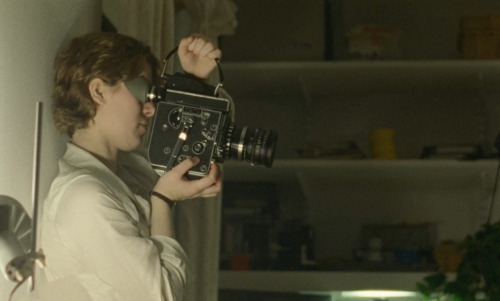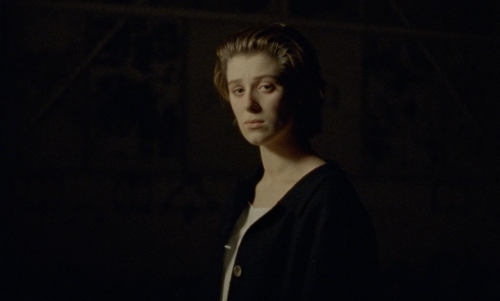The ruin, the souvenir, and me.
I have been studying the effects of forced migration on memory and identity of a diasporic subject for my Masters’ thesis for almost two years now, and even though the history through which Hiroshima got worldwide known has barely anything to do with my research, the way the city dealt with the memory of its tragedy echoed some of the main theories I have been reading and writing about for this couple of years. So, as I began to write about my day in that city, I thought of Svetlana Boym’s The Off- Modern, a book that is almost a glossary of key concepts by an author who made homesickness the focus of her research. And by all means, Boym was no stranger to this feeling, for the author herself had left the former Soviet Union and lived in America for the rest of her life, therefore, in a sense, she felt and lived what she was writing about and here I must allow myself to change the directions of this text that initially would be about the day I spent in Hiroshima seen through Boym’s theory to ponder about Joanna Hogg’s The Souvenir, a film that works as an intimate look into the daily life of an aspiring filmmaker as she tries to shoot a feature film and struggles with an abusive relationship with a man that is a heroin addict.

The Souvenir is about memories, about what stays with us, about how every recollection is interpreted and told from the present with all the advantages we gain when we talk about the past from a future point of view, and Hogg seems to know this well. Hence, why she can pour her emotions out, because, even though, the memories are still inside her, she is not in the middle of them. She is narrating and, in a narrative, despite its dependence of a receiver, of a listener, the control is bestowed to the one who is telling, and not the other way around. One’s memories can only be told through one’s perspective, it is a crime in which the criminal makes sure to leave his or her signature. So, this is a crucial perspective one must have when dealing with memory: everything told, shown, and so forth, is done by a subject that is situated in a very specific context, in time and place (Smith and Watson 2010). There is no way for one to be outside her or his own context in order to tell a story and there no past to come back to, there is only the interpretation we make of things we gather, such as movies, photographs, letters, emails, and the recollections we make throughout our lives. In a sense that, even if this text had remained about my one-day-trip to Hiroshima and I had attached every single photo I took while walking through the city, both, me and the city I would be describing, would be changed, therefore, gone.
I like to think of two theories about time and how it regulates our reality; first, the growing block universe that posits past and present as the only existing time concepts, leaving no room for the future to exist. Things became real when spoken into reality or done through actions in a present time that quickly is bound to become past. A past that is ever-growing. The more it grows the harder it gets to reach something there. The second, eternalism, posits that past and future are concepts created to describe a constantly changing present, there being only the now, a perpetual now. We perceived changes not time itself, for there would be only the present. So, I like to think every now and then about these theories when I see or read something about memory. In Hogg’s case, perhaps she is holding on to these memories to keep perceiving things changing, and consequently, avoiding the feeling that time just stopped.
The weird thing here is that thinking of Hiroshima made me think of Hogg’s film, and while doing that, I thought about a city I had visited first, and only after that, about the memories of past relationships I was in, despite the fact that a relationship is at the center of Hogg’s narrative. So, The Souvenir begins with a succession of black and white photos of a decaying small town, and this town is dying for the same reason a town dies around the globe: an industry nearby closes, people need to bring home the bacon and they left, however, the city or what is left of it, stays behind, just like some lotus-eaters also stay put denying what is happening to their town, and some other people who do not have the means to flee; thus, both groups begin to cohabit the ruins of once upon a time prosperous place. They live in a ghost town, they live with a presence that can be perceived, although not necessarily seen; felt, although not necessarily touched; present, and yet absent. And the ones who had to stay in such ruins are, then, the ones that Julie (played by a superb Honor Swinton Byrne), whose memories conducts us through The Souvenir’s narrative, wants to shoot.

Julie wants to tell the story of people who live without the same privileges she has, and she claims that through her film she would be able to really see them by trying to somehow make something new out of the narratives they give to her. She wanted to see what kind of life was happening outside her bourgeoise inner circle. Thus, here is when my trip to Hiroshima, my research on displaced people and Hogg’s film clashed on each other: one cannot really grasp the Other. This Lacanian capitalized Other. One can try but the Other, as reality, is something that escapes representation. Iain Chambers on his work Migrancy, Identity, and Culture writes about what he calls the violence of alterity. The other demands our attention because this same other, strange, foreigner, whichever be the name we call him or her, they make a strange, a foreigner, an Other of ourselves. I am for you are. Notwithstanding such an impossibility when representing the Other, one is always at risk of denying “complex personhood” (Gordon 1996) to the complex subjects of their representation by reducing them to objects, hence, withholding their own subjectivity. Julie is interested in those people’s narratives, experiences but there is no experience the precedes subjectivity (Hustvedt 2017).
Hogg through her character Julie is, then, obsessively digging into the ruins of a city and the ruins of her relationship, as I did during the day I spent in Hiroshima looking at a building that survived the bombing and refused to crumble completely. Or as I have been doing throughout my masters. Quoting the Japanese writer Haruki Murakami: “Memories warm you up from the inside. But they also tear you apart.” Don’t the ruins of any kind do the same? As Boym beautifully stated about ruins: they may mean mourning but also happiness for there was something, there is some life that stayed. And at the end of the day, that lingering is what should matter the most.
Post a comment